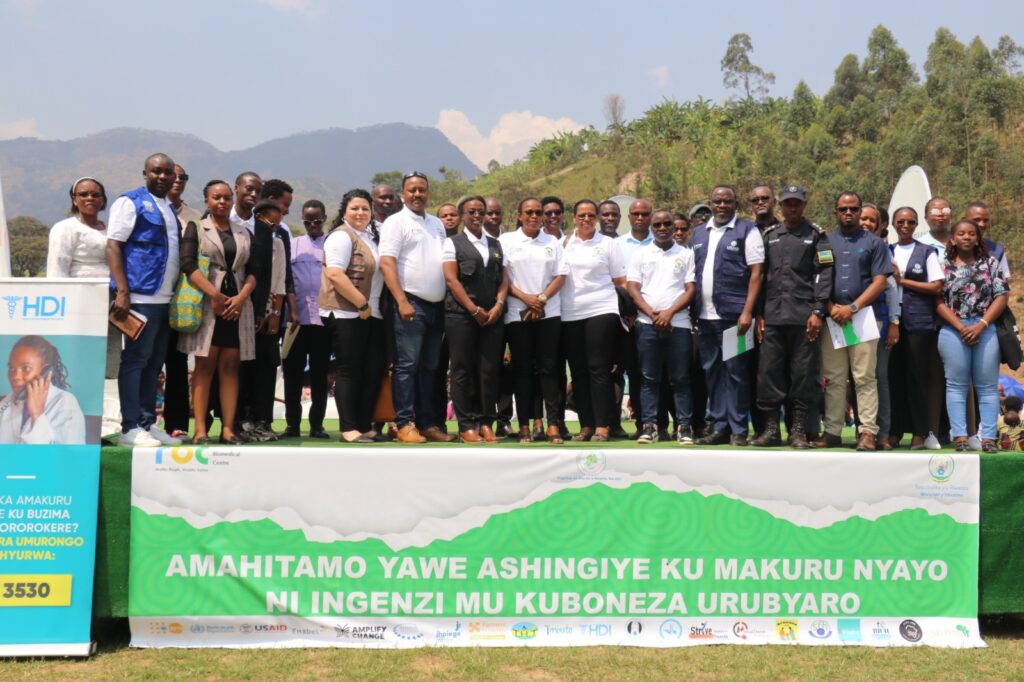
Before the official celebration day, 21st September, MDFC Rwanda, in partnership with IMRO Rwanda and HDI Rwanda, hosted a radio talk on Isango Star, on the importance of informed choice in contraceptive use, challenges surrounding the provision and accessibility of contraceptive services in Rwanda, and the critical role of civil society organizations in raising awareness and advocating for improved services.
The radio session emphasized the need for communities to rely on healthcare professionals for accurate information, aiming to dispel myths and misinformation about contraception. This initiative reinforced the collective commitment to empowering individuals through education and advocacy for better reproductive health services.


On 26th September, the official National celebration of World Contraception Day 2024 was held in collaboration with Gakenke District to emphasize the critical role of family planning in promoting health and socio-economic development.


Bringing together local government leaders, Civil Society Organizations (CSOs), and community members, the gathering focused on the benefits of accessible contraception, particularly modern methods that support gender equality and maternal health. Attendees engaged in meaningful discussions on the societal and individual advantages of contraception, emphasizing its potential to improve livelihoods and reduce health risks.
Throughout the event, speakers shared valuable insights into the ongoing efforts to improve contraceptive access. IMRO Rwanda’s Executive Director emphasized the urgent need for accessible contraception information and services to address family planning needs, reduce maternal mortality, and prevent unsafe abortions. A representative from USAID highlighted Rwanda’s remarkable achievements in increasing contraceptive use, showing how family planning contributes to gender equality, economic prosperity, and the well-being of entire communities. This recognition of progress in Rwanda underscored the broader impact of family planning policies and education on the health and stability of families and society.
To make these themes resonate personally, educational performances played a central role in the day’s activities. Itorero Indamutsa, a local troupe, presented a poignant sketch portraying the challenges faced by a family unable to access contraception, which led to financial and emotional difficulties. Their performance underscored how family planning can alleviate economic strains and improve mental and social well-being, demonstrating that the benefits of accessible contraceptives extend beyond individual families to entire communities. Additionally, a local couple shared their journey with family planning, explaining how it had helped them avoid unplanned pregnancies, achieve financial stability, and better care for their children, ultimately enhancing their quality of life.
The event closed with several recommendations to foster broader access to family planning services in Rwanda. These included expanding awareness campaigns, particularly in rural areas; increasing male involvement and youth engagement in family planning discussions to promote shared responsibility; and strengthening the infrastructure needed to ensure that contraceptive services are readily available and affordable in underserved communities.
